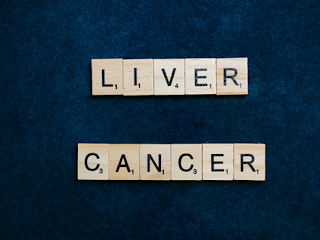what cancers cause elevated liver enzymes

"What Cancers Cause Elevated Liver Enzymes" explores the link between abnormal liver enzymes and specific types of cancer.
Elevated liver enzymes, while often associated with non-cancer-related conditions, can also be indicative of certain types of cancer. In this article, we will delve into the link between elevated liver enzymes and cancer, focusing on hepatocellular carcinoma (HCC) and other cancers that may lead to abnormal liver enzyme levels.
What Cancers Cause Elevated Liver Enzymes?
Before we dive into the specifics, it's crucial to understand what liver enzymes are and their role in our body. Liver enzymes are proteins that perform essential functions in the liver, including aiding in digestion and detoxification. The two key enzymes often measured in blood tests are alanine aminotransferase (ALT) and aspartate aminotransferase (AST).Common Causes of Elevated Liver Enzymes
Elevated liver enzyme levels can result from various factors. It's important to distinguish between non-cancer-related causes and those connected to cancer.Non-Cancer-Related Causes
Non-cancer-related causes of elevated liver enzymes encompass lifestyle factors, such as excessive alcohol consumption, obesity, and certain medications. Additionally, viral hepatitis and fatty liver disease can lead to increased liver enzyme levels.Cancers Linked to Elevated Liver Enzymes
Certain cancers can cause liver enzymes to spike, primarily due to the damage they inflict on liver tissue. The most prominent cancer associated with elevated liver enzymes is hepatocellular carcinoma (HCC).Exploring Hepatocellular Carcinoma (HCC)
Hepatocellular carcinoma is a primary liver cancer that often arises in individuals with pre-existing liver conditions. Let's explore this cancer in more detail.Risk Factors
HCC is commonly linked to chronic hepatitis B and C infections, cirrhosis, excessive alcohol consumption, and exposure to aflatoxins. Those with a family history of HCC are also at an increased risk.Symptoms
HCC can remain asymptomatic in its early stages. However, as the disease progresses, individuals may experience symptoms like jaundice, abdominal pain, unexplained weight loss, and fatigue.Diagnosis
Diagnosing HCC typically involves blood tests, imaging studies like CT scans and MRIs, and sometimes a liver biopsy to confirm the presence of cancer cells.Treatment
The treatment options for HCC depend on the stage of cancer and the overall health of the patient. Common treatments include surgery, liver transplantation, ablation therapies, chemotherapy, and targeted therapies.Other Cancers and Liver Enzymes
While HCC is the primary cancer associated with elevated liver enzymes, other cancers can indirectly affect liver function. Metastatic liver tumors, originating from cancers in other parts of the body, can also lead to abnormal liver enzyme levels.Importance of Early Detection
Early detection of cancers causing elevated liver enzymes is crucial for improving treatment outcomes. Regular medical check-ups, especially for individuals at higher risk, can aid in timely diagnosis and intervention.Summary
In conclusion, understanding the connection between elevated liver enzymes and cancer, particularly hepatocellular carcinoma, is essential for early diagnosis and effective treatment. While not all elevated liver enzyme cases are cancer-related, monitoring and discussing changes with a healthcare provider is paramount.FAQs
Can non-cancer-related factors cause elevated liver enzymes?Yes, factors like excessive alcohol consumption, obesity, and certain medications can lead to elevated liver enzyme levels.
What are the risk factors for hepatocellular carcinoma (HCC)?
Risk factors for HCC include chronic hepatitis B and C infections, cirrhosis, excessive alcohol consumption, exposure to aflatoxins, and family history of the disease.
How is HCC diagnosed?
HCC is typically diagnosed through blood tests, imaging studies, and sometimes a liver biopsy to confirm the presence of cancer cells.
What treatment options are available for HCC?
Treatment options for HCC include surgery, liver transplantation, ablation therapies, chemotherapy, and targeted therapies, depending on the stage and the patient's health.
Why is early detection of cancers causing elevated liver enzymes important?
Early detection is crucial because it improves the chances of successful treatment and better outcomes for the patient.
Related:
.png)

.png)



0 Comments